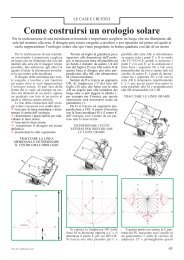Sharon Freedman Education Director Niabi Zoo 12908 ... - Library
Sharon Freedman Education Director Niabi Zoo 12908 ... - Library
Sharon Freedman Education Director Niabi Zoo 12908 ... - Library
Create successful ePaper yourself
Turn your PDF publications into a flip-book with our unique Google optimized e-Paper software.
<strong>Sharon</strong> <strong>Freedman</strong><br />
<strong>Education</strong> <strong>Director</strong><br />
<strong>Niabi</strong> <strong>Zoo</strong><br />
<strong>12908</strong> <strong>Niabi</strong> <strong>Zoo</strong> RD<br />
Coal Valley IL 61240<br />
]www.niabizoo.com<br />
<strong>Niabi</strong> <strong>Zoo</strong> is accredited by the Association of <strong>Zoo</strong>s and Aquariums. The AZA<br />
is America's leading accrediting organization that sets rigorous,<br />
professional standards for zoos and aquariums. The AZA is building North<br />
America's largest wildlife conservation movement by engaging and inspiring<br />
the 143 million annual visitors to its member institutions and their<br />
communities to care about and take action to help protect wildlife.<br />
1. What is the name/location of your zoo/aquarium?<br />
<strong>Niabi</strong> <strong>Zoo</strong>, Coal Valley, IL<br />
2. What was your zoo’s/aquarium’s role in the Year of the Frog?<br />
We partnered with the local botanical center (in their jungle area) to<br />
present a guest lecturer who was an amphibian biologist. We answered<br />
questions about amphibians, the botanical staff answered questions about<br />
rainforests.<br />
We participated in Party for the Planet - as we do each year. We focused<br />
several of our summer classes/camps on amphibians and their conservation.<br />
We are currently constructing a new amphibian exhibit in the Discovery<br />
Center. And we have registered our zoo pond as a Frogwatch site. Our<br />
teen volunteers will be making observations this season.<br />
3. What kind of response did you receive regarding the Year of the Frog?<br />
Generally good, although some people still don't understand why this<br />
should be a concern to them, personally.<br />
4. What role will the zoos of the world play in saving declining toad<br />
and frog populations?<br />
<strong>Zoo</strong>s play an essential multi-layered role. We house and breed species<br />
which are endanger of being lost in the wild. With a bit of luck and good<br />
management, we may someday be able to re-establish wild populations.<br />
<strong>Zoo</strong>s are important research facilities with a number of amphibian based<br />
studies underway in various zoos (not here though).<br />
Most, if not all zoos, are major financial contributors to worthwhile<br />
conservation organizations which support animals and their habitats.
5. How can zoologists contribute to unraveling the mystery of chytrid<br />
fungus?<br />
<strong>Zoo</strong>logists are trained scientists currently doing research in the lab and<br />
the field.<br />
6. Have you had any frogs in captivity that have died from the chytrid<br />
fungus? If so, why?<br />
No. Our amphibians are all captive bred from chytrid free populations.<br />
7. Has your zoo/aquarium focused its research on the anatomy of the<br />
chytrid fungus or ways to protect the frogs from chytrid fungus and other<br />
diseases?<br />
We have not. We do however maintain an ongoing rainforest conservation<br />
interest in Costa Rica. We have limited research funds and they are<br />
directed elsewhere at this time.<br />
8. How is global warming, destruction of the world’s rainforests,<br />
greenhouse gases, and acid rain directly affecting frog/toad populations?<br />
In addition to the obvious loss of habitat and the ensuing loss of food<br />
and breeding grounds. Amphibian populations have been condensed into<br />
smaller areas. When these areas are densely populated with amphibians,<br />
all diseases, including chytrid can spread much faster.<br />
9. Now that the Year of the Frog is complete, is there anything you would<br />
like the public to know further regarding the chytrid fungus or declining<br />
amphibian populations? What would you like to see happen next for frogs?<br />
Our concern is that people should not forget that even though the<br />
"Year of the Frog" is over, the crisis of the frog is not.<br />
10. What is one thing you would like the public to appreciate about frogs?<br />
Two things: Frogs are rather low in many food chains, therefore, the<br />
effects of changes in the frog population will be seen throughout the<br />
populations of all animals "higher" than them in the chain.<br />
Also, amphibians are delicate animals which are rather quickly affected by<br />
environmental changes. The condition of frog populations today is a<br />
prediction of the condition of reptile, bird and mammal populations in the<br />
future - unless something is done to change the current trends.






